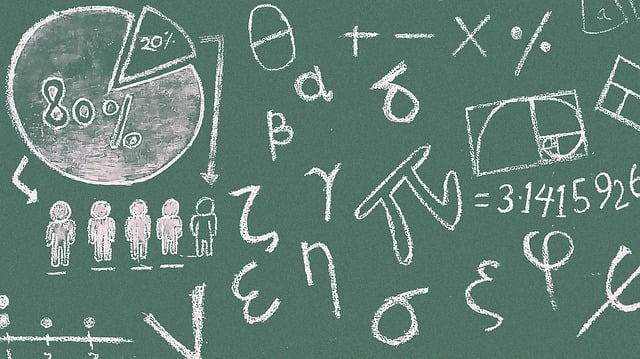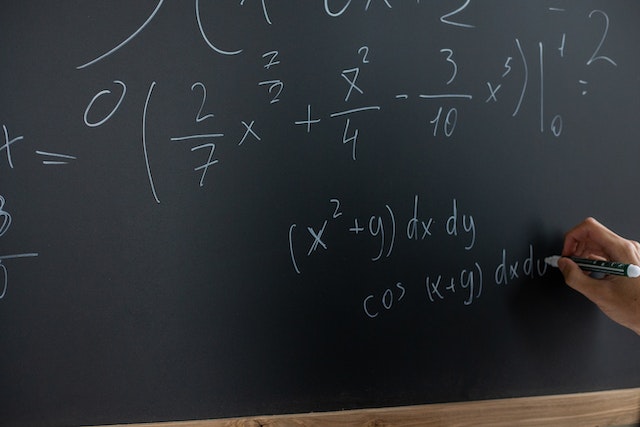
Expert Tips for Mastering Math Homework
Struggling with math homework? Check out these expert tips and tricks for mastering math and getting help when you need it. Say goodbye to math struggles and hello to success!
Read MoreAlgebra is important for mathematics success and is a prerequisite for many higher-level math courses. It teaches students to think logically and systematically to solve problems in various fields, including physics, engineering, finance, and computer science.
Although learning algebra can be challenging, we will present the basic concepts of algebra and valuable tips on how to master it systematically.
Algebra is a fundamental branch of mathematics that involves changing math expressions and symbols through addition, subtraction, multiplication, or division. In algebra, letters and symbols represent unknown amounts or numbers. This helps solve equations and inequalities and discover connections and patterns between amounts.
Algebra teaches students to approach a problem systematically and logically, breaking it down into smaller parts and using mathematical concepts and operations to find a solution. Problem-solving skills are essential in many aspects of life, and algebra provides a valuable opportunity for students to develop these skills.
When solving this equation, students must isolate the variable on one side and simplify the expression on the other. This process requires critical thinking, logical reasoning, and attention to detail.
Solving algebraic problems can help students develop important qualities such as persistence, perseverance, and a growth mindset. Algebraic problems are challenging, and students must try multiple methods or make mistakes before finding the correct solution. This process teaches students to persevere and continue working on a problem even when it seems difficult.
Algebra is a prerequisite for many higher-level math courses, such as geometry, trigonometry, and calculus. For success in higher-level math, you must first master the basics of algebra. Algebra helps students understand math and solve problems in various fields, including physics, engineering, finance, and computer science.
Algebra is required for many college majors, particularly in science, technology, engineering, and mathematics (STEM) fields. A strong understanding of algebra can open up many career opportunities.
Algebra can be applied in various real-world situations, such as finance, physics, engineering, and data analysis. Knowing algebra can put you ahead of your peers as it helps you analyze data efficiently and effectively.
Algebra requires students to think logically, creatively, and critically. Students can develop their ability to analyze complex systems, understand patterns, and make connections between mathematical concepts and real-world situations by engaging in algebraic problems.
A variable is a letter or symbol used to represent an unknown quantity or value. The mostly used variables in algebra are x, y, and z.
This type of expression combines numbers, variables, and mathematical operations such as addition, subtraction, multiplication, and division. For example, 3x + 2y
It is a mathematical statement that states that two expressions are equal. Equations are written using an equal sign (=). For example, 2x + 3 = 7
This is a mathematical statement stating that two expressions are unequal. Inequalities are written using symbols such as < (less than), > (greater than), ≤ (less than or equal to), and ≥ (greater than or equal to). For example, 2x + 3 < 7.
Algebraic operations are used to manipulate algebraic expressions and solve equations. The following are the basic algebraic operations:
They are used to combine or separate terms in algebraic expressions. In expressions like, 3x + 2y - 4z, 3x, 2y, and -4z are the terms, and + and - are the signs that indicate the operations.
They are used to multiply or divide terms in algebraic expressions. For example, 3x + 2y, 3, and x are multiplied in the expression, and 2 and y are multiplied.
It reduces algebraic expressions to their simplest form by combining like terms and applying the distributive property. For example, the expression 3x + 2x can be simplified to 5x.
Solving algebraic equations involves finding the variable's value that makes the equation true. The following steps can be used to solve algebraic equations:
Simplify the equation by combining like terms and applying the distributive property.
Isolate the variable on one side of the equation by performing inverse operations. For example, if the equation is 2x + 3 = 7, subtracting 3 from both sides gives 2x = 4. Then, dividing both sides by 2 gives x = 2.
Check the solution by substituting the variable's value into the equation to ensure it makes it true.
Students tend to grasp the concepts when the math situation relates to the real world. This can help students see the relevance and importance of their learning, making the subject more engaging and memorable.
Studies have shown that students learn differently, so teachers must use various methods when delivering the content. This might include lectures, hands-on activities, group work, and technology-based tools.
The major challenge students face in Algebra is understanding abstract concepts. Teachers need to explain terms and break down concepts providing clear explanations that are easy for students to understand. Use visual aids and real-world examples to make the material more accessible, and encourage students to ask questions if they need clarification.
Encourage critical thinking by asking open-ended questions that enable students to think beyond the textbook and apply their knowledge to real-world problems. Encourage students to make connections between concepts and give them opportunities to explore and discover the material independently.
Every student prefers learning in a fun environment. Algebra is known to be a dry subject for some students, but you can help make it more engaging by incorporating hands-on activities, games, and real-world applications into your lessons. This will make the subject enjoyable for students and help them retain the information.
We all know that practice makes perfect. With algebra being difficult for some students, practice is key to unlocking their potential. Provide enough time for students to practice the concepts they are learning. They can practice through homework assignments, classwork, and assessments.
Encourage students to seek help if they are struggling and actively participate in the learning process. This might involve asking questions, working on problems, or explaining their thoughts. Active learning can help students retain information better and develop their problem-solving skills.
As a teacher, you should provide regular feedback to students on their progress and performance. This can help students understand their weaknesses and strengths to allow for improvement and boost their confidence.
Support struggling students through extra tutoring, homework help, or alternative teaching methods. The extra support can help students overcome any challenges they may be facing and ensure they stay on track.
Celebrating the students' successes and accomplishments will motivate them to perform better the next time. This builds a positive and supportive learning environment and encourages students to continue working hard.
Learning algebra is challenging for many students, but with the right approach and mindset, it can be a rewarding experience. Here are some tips to help you learn algebra effectively:
Begin by mastering the basic concepts of algebra, such as variables, expressions, equations, and inequalities. Ensure you understand these concepts thoroughly before moving on to more advanced topics.
Practice is the answer to mastering the concepts. The more you practice, the more the concepts become easier. Reviewing previous topics regularly will help reinforce your understanding of algebra and prevent you from forgetting important concepts.
Don't shy away from asking for help if you struggle with a particular concept. You can ask your teacher, tutor, or classmates for assistance.
Make good use of the free online resources to improve your algebra scores. Some popular resources include Khan Academy, Wolfram Alpha, and Mathway. They have videos where they can break down difficult concepts into simpler forms.
A study group can be a great way to learn algebra. You can discuss concepts, solve problems, and help others understand difficult topics.
Being motivated to learn the concepts you don't understand requires persistence Algebra can be challenging but don't give up. Stay motivated and persistent, and remember that every problem you solve is one step closer to mastering algebra.
Algebra is not just a theoretical subject; it has practical applications in many fields, such as science, engineering, and finance. Try to apply algebra to real-life situations to make it more meaningful and interesting.
Algebra 1 is a math course taught in high school, usually in the 9th grade, but this can vary depending on the school or educational system.
Algebra 1 teaches fundamental math concepts to prepare students for advanced math courses. It covers topics including linear equations, polynomials, quadratic functions, systems of equations, graphing linear, and analyzing their properties, including slope and intercepts.
The ideal time to take Algebra 1 depends on strengths, interests, curriculum, learning style, and school expectations. Students of age 11 to 14, and most schools offer it for grade 9 students. Starting early can allow students to develop a foundation in algebra, build their confidence and prepare them for advanced math courses. It can also help academically advanced students stay challenged and motivated.
Algebra 2 is a high school mathematics course that builds upon Algebra 1 and covers different topics.
Algebra 1 covers fundamental topics such as algebraic equations, expressions, and functions and is the basis for Algebra 2. Algebra 2 covers more advanced topics, such as advanced algebraic techniques, trigonometry, and mathematical modeling, expanding on the foundation in previous algebra courses.
Algebra is important for mathematics success and is a prerequisite for many higher-level math courses. Algebra teaches students to approach a problem systematically and logically, breaking it down into smaller parts and using mathematical concepts and operations to find a solution. Algebra can be applied in various real-world situations, such as finance, physics, engineering, and data analysis. Although it is difficult for some students, with practice, things are possible.

Get affordable and top-notch help for your essays and homework services from our expert tutors. Ace your homework, boost your grades, and shine in online classes—all with just a click away!



Fast, secure, and handled by vetted experts.

Struggling with math homework? Check out these expert tips and tricks for mastering math and getting help when you need it. Say goodbye to math struggles and hello to success!
Read More
Learn the proper way to cite a diagram in your academic work, including the format for in-text citations and references. This guide will ensure you give credit where credit is due and avoid plagiarism issues.
Read More
Struggling with calculus? Here are some effective strategies to help you boost your performance and get the calculus homework help you need to succeed.
Read More